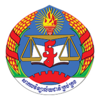Bachelor of Science in Smart-City Planning Management
Type : Undergraduate Program
Faculty : Faculty of Digital Economy
Department : Smart City
Level : Bachelor’s Degree
1. Objective
The program is assigned:
– To develop skills for the future, aligning with global and national initiatives towards smart cities and offered by the National University of Management;
– It aims to nurture graduates who innovate solutions to urbanization challenges through application of interdisciplinary knowledge across technology, social sciences and public management;
– To train professionals to manage those multidisciplinary concerns, and to apply the enabling technologies.
2. Program Learning Outcomes: PLO
On successful completion program students will be able to:
E. Knowledge
PLO1: Appreciate the social, governance and economic challenges of urbanization
PLO2: Understand the role of technology in enabling smart city
PLO3: Apply appropriate technologies to address urbanization challenges (such as planning a city) and deliver solutions/services that improve the lives of citizens.
F. Cognitive Skills
PLO4: Be able to evaluate information of various sources
PLO5: Be able to process the information to identify the real-world problems
PLO6: Be able to efficiently analyze the data and provide solution to the real-world problems
G. Interpersonal Skills and Responsibility
PLO7: Become dependable person in any given situation
PLO8: Become proactive team players in assigned teamwork
PLO9: Possess a strong leadership skill
H. Numerical Skills, Information Technology and Communication
PLO10: Use computer digital technologies to conduct data analysis
PLO11: Use basic statistics for quantitative research
PLO12: Use computer programming skills to design apps.
3. Admission Requirements
Candidates to be selected in this program:
– Must hold a high school certificate with acceptable grade set by the National University of Management or equivalence
- Must earn a passing score of the comprehensive English test or a required English certificate.
4. Credit System
Students of Bachelor of Science in Digital Economy must undertake the four-year program and must earn a minimum of 120 credits. Students are encouraged to take additional online courses of their interests in addition to the courses provided by the university using facilities at the smart classrooms and digital economy lab.
5. Courses
Basic Major Subjects
Microeconomics
Cambodia’s Digital Economy Development
Macroeconomics
Statistics for Business and Economics
Introduction to Digital Economy
Law & Public Policy for Business
Fundamentals for Finance
Development Economics
Research Methodology
International Trade and Finance
Financial Markets and Regulations
E-Commerce
Quantitative Analysis Using STATA
Business Start-Up
Financial Risk and Insurance
E-Logistic Management
Introduction to Financial Technology
Core Major Subjects
App Development I
App Development II
App Development III
Sustainable Cities
Environmental Science
Data Management
Internet of Things
Information Systems & Innovation in Smart Cities
Security Management & Data Privacy
Research Seminar
Social Media & Organization
Geospatial Analytics for City Planning
Social Analytics for Smart Living
Smart City Systems and Management
Introduction to Computer Science
Mathematics for Business and Economics
Critical Thinking
Creative Writing and Communication
6. Structure of the Program
Year 1
| Semester 1 | Semester 2 | ||
|---|---|---|---|
| Course | Credit | Course | Credit |
| 1.Microeconomics | 3 | 1.Microeconomics | 3 |
| 2. Introduction to Computer Science | 3(2.0.1) | 2. Statistics for Business and Economics | 3 |
| 3. Mathematics for Business and Economics | 3 | 3. Introduction to Digital Economy | 3 |
| 4. Cambodia’s Digital Economy Development | 3 | 4. Creative Writing and Communication | 3 |
| 5. Critical Thinking | 3 | 5. App Development I | 3(2.0.1) |
| Total | 15 | Total | 15 |
Year 2
| Semester 3 | Semester 4 | ||
|---|---|---|---|
| Course | Credit | Course | Credit |
| 1. Law & Public Policy for Business | 3 | 1. Introduction to Financial Technology | 3(2.0.1) |
| 2. App Development II | 3 | 2. App Development III | 3 |
| 3. Sustainable Cities | 3(2.0.1) | 3. Environmental Science | 3 |
| 4. Fundamentals of Finance | 3 | 4. Research Methodology | 3 |
| 5. Development Economics | 3 | 5. International Trade and Finance | 3 |
| Total | 15 | Total | 15 |
Year 3
| Semester 5 | Semester 6 | ||
|---|---|---|---|
| Course | Credit | Course | Credit |
| 1. Data Management | 3 | 1. Quantitative Analysis Using STATA | 3 |
| 2. Internet of Things | 3(2.0.1) | 2. Business Start-Up | 3(2.0.1) |
| 3. Information Systems & Innovation in Smart Cities | 3 | 3. Security Management & Data Privacy | 3 |
| 4. Financial Markets and Regulations | 3 | 4. Financial Risk and Insurance | 3 |
| 5. E-Commerce | 3 | 5. E-Logistic Management | 3 |
| Total | 15 | Total | 15 |
Year 4
| Semester 7 | Semester 8 | ||
|---|---|---|---|
| Course | Credit | Course | Credit |
| 1. Research Seminar | 3 | 1. Thesis Writing | 3 |
| 2. Growth Theory | 3 | 2. Internship | 3 |
| 3. Macro-economic Modelling (Computable General Equilibrium) | 3 | 3. Study Tour | 1 |
| 4. Social Analytics for Smart Living | 3(2.0.1) | ||
| 5. Smart City Systems and Management | 3 | ||
| Total | 15 | Total | 6 |
7. Graduation Requirements
To successfully complete the program, students must earn a minimum of 120 credits.
8. Degree Offered:
Bachelor of Science in Smart-City Planning Management
9. Career Perspectives
This major will prepare students for a wide variety of job roles, including:
– IT or management consultants for smart systems
– Sustainable solution designer
– Urban planners
– Smart systems designer and developer.
